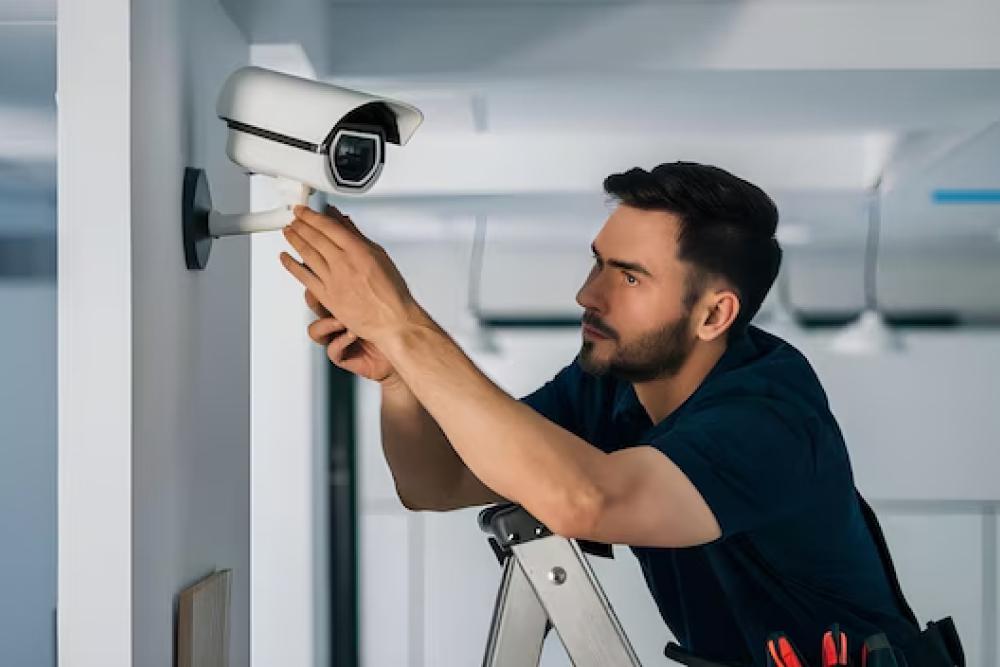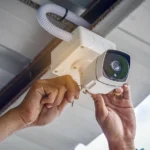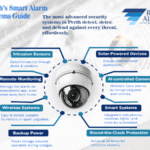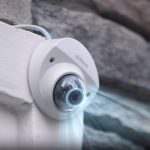Whether you are planning to secure your home or office, a security camera is indispensable for 24/7 surveillance. Studies show that homes with security cameras have a 300% reduced risk of being invaded by burglars.
The data shows that compromising on CCTV cameras can be much more costly than investing in a secure system. However, setting up security systems in your space is a long-term investment that needs careful consideration.
This informative blog will discuss everything you need to know before investing in your home security. Read on!
Why Should You Invest in Security Cameras?
Let’s understand the need to install a secure camera system in your home and other spaces.
It is often noticed that burglars avoid breaking into the property equipped with security cameras. According to a study, criminal activities are significantly reduced by 47% when the security camera is visible on the property.
Security camera recordings are essential investigation tools for identifying suspects. Since there is a greater chance of getting caught, criminals deliberately avoid properties with surveillance systems.
Hence, installing a security camera on your property is undoubtedly a smart investment for a secure and safe environment.
Breaking Down the Costs of Home Security Cameras
The installation of surveillance cameras involves several costs. Depending on the equipment, quality, and other factors, the cost of installing a security camera system may range from $200 to $1200.
Here is the breakdown of the costs:
- Camera Equipment
Depending on their functionality, security cameras can range widely in price. High-end devices with the latest features like 4K video resolution, motion detection, and night vision can cost $200 to $500 per camera, while basic interior models usually cost between $50 and $150. The average person may spend between $500 and $2,000 for a full home security system that includes both indoor and outdoor cameras.
- Installation and Setup Costs
Installing a security camera involves technical knowledge and expertise. For setting up the system, you can hire a professional; however, it will be expensive. The service charges by a professional may vary between $100 and $200 based on the complexity and place. Some security firms give free installation if you subscribe to their monitoring services which often require a long-term agreement.
- Monitoring Fees
Many homeowners opt for monitoring services that alert the authorities in case of suspicious activity for enhanced security. Such services usually cost between $10 to $50 per month, depending on whether they include video storage and the level of monitoring. The monitoring costs may amount to about $120 to $600 per annum.
- Video Storage Costs
You will require extra means of storage if you want to retain the recorded video. Depending on the requested data storage volume and the length of time the footage remains stored. For this, the cloud storage costs can range from $3 to $15 per month. Otherwise, local storage, such as an external hard drive, may include one-time fees of $50 to $150 for the hardware used to store the video.
- Maintenance and Repair Costs
With time, security cameras will need to be maintained. Examples of maintenance include cleaning lenses, battery replacements, or hardware faults. On average, the cost for this could be $50 to $100 a year if your cameras face harsh weather. Repair, in case the need is felt, would typically range from $75 to $200, depending on the nature of the fault.
- Power and Connectivity Costs
Wired cameras have to be wired into a power source, which sometimes can also add extra electrical installation. Wireless cameras require batteries, but within 6 to 12 months, they would have been used up and then have to be replaced at around $20 to $50 annually. There will also be slight increases in your internet bill from the increased data usage.
- Additional Equipment Costs
Upgrading the security system will require more equipment, including mounts, and extra sensors. Accessories will cost you around $20 to $100 per item, depending on the brand and features. For example, a motion sensor might be around $40, while outside cameras can have a spotlight at around $50 to $150. Even when these are not strictly necessary, optional extras make a huge difference in how much cameras can cover and how efficient they are.
- Mobile Apps and Software Costs
Most security systems with the latest technology come with mobile applications or software with which a person can see live feeds, enable remote control of cameras, and send alerts. The basic application is free of cost, but premium services such as alert options, cloud storage, and video editing can get pricey, ranging from $5 to $15 per month. Some systems charge extra to include these features as part of their monitoring service while others may offer access to an app.
- Upgradation of System Costs
After installing a certain number of cameras, you may need to install more or upgrade them to a higher definition or quality. The more cameras you need to add, the higher the cost. Adding another camera to an existing system costs approximately $100 to $500 per camera, depending on the brand and model. Upgrades such as switching to higher resolution cameras like 4K or adding more features like facial recognition can drive the prices up even higher. On average, an upgrade or expansion of a system can add $500 to $1,500 to the total cost.
Factors to Consider When Investing in a Security Camera System
Installing a surveillance system in your property is a long-term investment for your safety and peace of mind. This is why you must make an informed decision when investing in such a long-run investment for security. There are certain factors to consider when installing a home security camera system.
Here are the important factors to consider:
- Type of camera: The price is significantly influenced by the type of camera , whether it is specialized, outdoor, or indoor. For example, because outdoor cameras need to be weatherproofed and durable, they are typically more expensive.
- Quality: The higher the quality of the cameras, the higher their cost. Some cameras offer such features as 4K resolution, night vision, or improved sensors. High-quality cameras will capture more clear images, which could be vital in identifying culprits.
- Coverage area: You will need more cameras if you need to cover a greater area. Because the additional equipment and setup for large areas, such as commercial buildings or extensive properties, may be more expensive.
- Storage: In general, cameras with cloud storage or with larger local storage capacity tend to be a premium. Sure enough, these plans of cloud storage carry monthly fees and local storage will need an upfront cost for external devices like hard drives.
- Smart features: Smart cameras with inbuilt features such as motion detection, facial recognition, or integration with other smart home devices are more costly. These features enhance the security and the automation of the system, hence valuable for a full setup.
- Brand reputation: Reputable brands cost more because they have better customer care and reliable technology. A trusted brand means they also offer better long-term support and cameras, which may put a higher price on them.
FAQs
- Are home security cameras a good investment?
Yes, since they assist in investigations, offer peace of mind, and prevent crime, home security cameras are a great investment. They can increase general home and company safety and reduce the chance of burglaries.
- Can security cameras function without wi-fi?
Yes, some security cameras that use wired connections or local storage such as SD cards can function without Wi-Fi.
- How long do security cameras store footage?
Local storage, such as hard disks, can store video for weeks or months, depending on storage capacity, whereas cloud storage services save footage for 7 to 30 days on average.
- Can security cameras work during power cuts?
Many security cameras are equipped with backup batteries or power options during power cuts. However, system configuration and battery life affect how successful they are.
- How do I choose the right security camera for my home?
Take into factors like camera type (outdoor/indoor), resolution, coverage area, and special features like motion detection or night vision. Assessing your storage alternatives, price, and whether you require remote access is also crucial.
The Bottom Line
Security cameras are crucial for ensuring safety and property owner’s peace of mind. As a significant security investment, security camera installation needs careful and informed decision-making. From installation to maintenance, the security camera system involves several costs. In this blog, we have discussed all the major costs and considerations that might help you with installing a security camera system. If you need more expert insights on security camera systems, stay tuned with Rapid Alarms.






